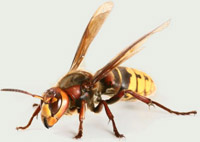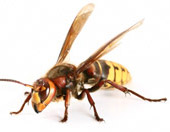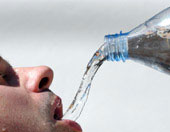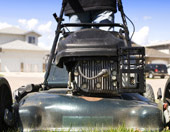
Protecting against summer bug bites and stings
Posted in Healthy & Wellness on July 15, 2011. Last modified on April 02, 2019. Read disclaimer.
Do you welcome summer sun and fun, but dread the insects that come along with the season? Since bug bites and stings can range from merely annoying to life-threatening, let this advisory from the U.S. Food and Drug Administration help you be less "bugged."
+ Free Shipping & Returns on Eligible Items.
(*Amazon's Top 100 list updated hourly.)
Avoiding bug bites and stings:
- Use window screens and netting. Repair any openings.
- Avoid wooded, brushy and grassy areas when possible
- Avoid scented soaps, colognes, hair spray and perfumes
- Be careful when eating and drinking outside; don't leave drinks, foods and garbage uncovered
- Clothing considerations:
- Bees are more attracted to whites, yellows and bright colors than to neutral colors such as tan or khaki.
- On the other hand, light colors make it easier to spot and remove ticks
- Clothes should fit snug and cover legs and arms
- Do not go barefoot and shake out shoes before putting them on
- Be vigilant around shutters or other places bees tend to build hives
- When possible, wear long sleeves and long pants, tucked into socks or shoes
- Use insect repellent if non-chemical methods aren't working and you spend time in wooded, tall grass areas
If you have concern about using insect repellents on yourself or children, consult a healthcare provider. If you do use repellents, be sure that you...
- read and follow the label directions
- store repellents out of reach of children, in a locked cabinet or shed
- never spray directly into the face; spray on hands first, then apply to the face
- do not use any product on pets or other animals unless the label clearly states that it is for them
Treatment for bites or stings from ticks, mosquitoes, scorpions, bees and more:
Tick bites are usually harmless, but, depending on the area and type of tick, they can infect people with Lyme disease, Babesiosis, Rocky Mountain Spotted Fever and other tick borne illnesses.
- To remove a tick, use a fine-tipped tweezers and grip the tick as close to the skin surface as possible, trying to include the mouthparts and any skin that is within its grips. Pull straight up with steady, even pressure being careful not to twist or jerk which can cause the mouth parts to dislodge and remain embedded in the skin. Clean the bite with soap and water, rubbing alcohol or iodine scrub.
- Do not attempt to remove the tick with heat, petroleum jelly, fingernail polish, with your fingers or any method other than described above as this can cause the tick to release fluids into the bite area.
- If a rash or fever occurs within several weeks, seek medical attention.
Mosquito bites usually cause little more than swelling and itching. Mosquitoes can, however, transmit West Nile Fever, which can be serious -- especially for the elderly.
Desert-dwelling scorpions in the U.S. have painful bites but they are mostly harmless -- to adults. A child, older adult or pet stung by a scorpion should get immediate medical treatment.
Bee, wasp, hornet, yellow jacket stings:
In cases of severe allergic reaction, seek medical attention immediately and use epinephrine or prescribed medication. The symptoms of a severe allergic reaction may include:
- decreasing consciousness, dizziness, weakness or numbness
- difficulty breathing or swallowing
- swelling of face, eyes, tongue, lips or throat
- skin or extremities become pale, cool and moist
In case of fever or if the sting area becomes extreme painful or swollen, red and warm, or if red streaks radiate from sting:
- See a doctor
In cases of mild reaction:
- Bee stings: scrape out the stinger as soon as possible with a blunt knife, credit card or fingernail. Do not pull out the stinger with tweezers or finger as this can squeeze more venom into the affected area.
- Wasps, hornets and yellow jackets do not lose their stingers.
- Wash area with soap and water.
- Apply a cold compress (ice wrapped in a cloth) for 10-15 minutes. Do not apply ice directly to skin.
- Keep affected area below heart level.
- Over the counter pain reliever, antihistamine (to reduce swelling) and 1% hydrocortisone cream (to minimize itching) may be used if needed.

 Whole Grain Cooking Guide
Whole Grain Cooking Guide Avoiding and Treating Bug Bites
Avoiding and Treating Bug Bites Plastic Water Bottle Safety Concerns
Plastic Water Bottle Safety Concerns Should Everyone be Eating a Gluten-Free Diet?
Should Everyone be Eating a Gluten-Free Diet? Healthy Foods: Pomegranate
Healthy Foods: Pomegranate Tips for Building a Child's Self-Esteem
Tips for Building a Child's Self-Esteem Helping Your Child Succeed in School
Helping Your Child Succeed in School Potential Benefits and Dangers of Raw Milk
Potential Benefits and Dangers of Raw Milk How Many Calories are Burned Doing Everyday Activities
How Many Calories are Burned Doing Everyday Activities